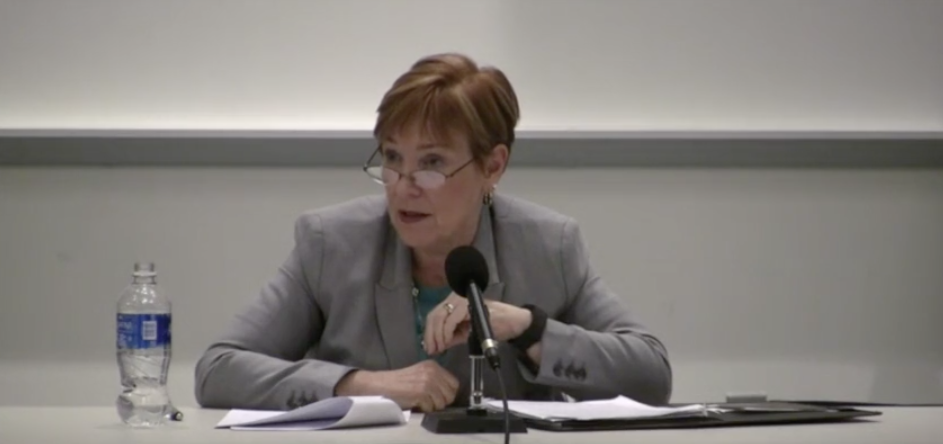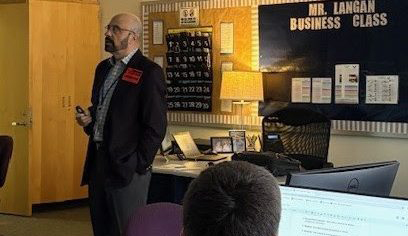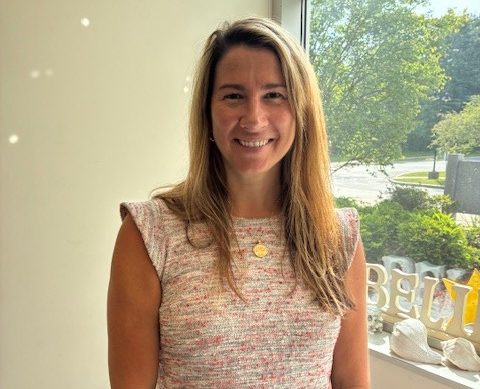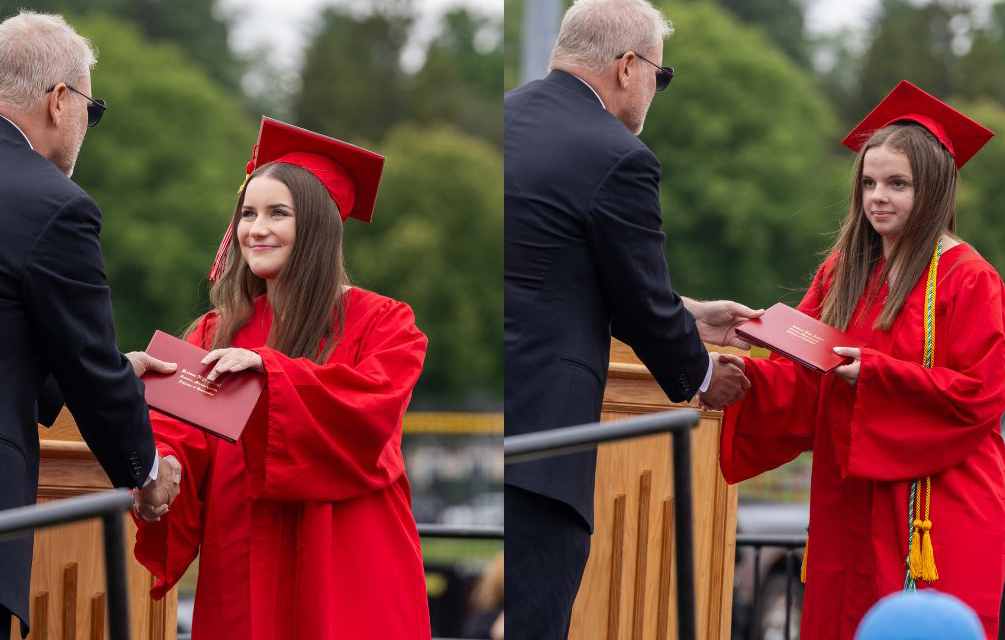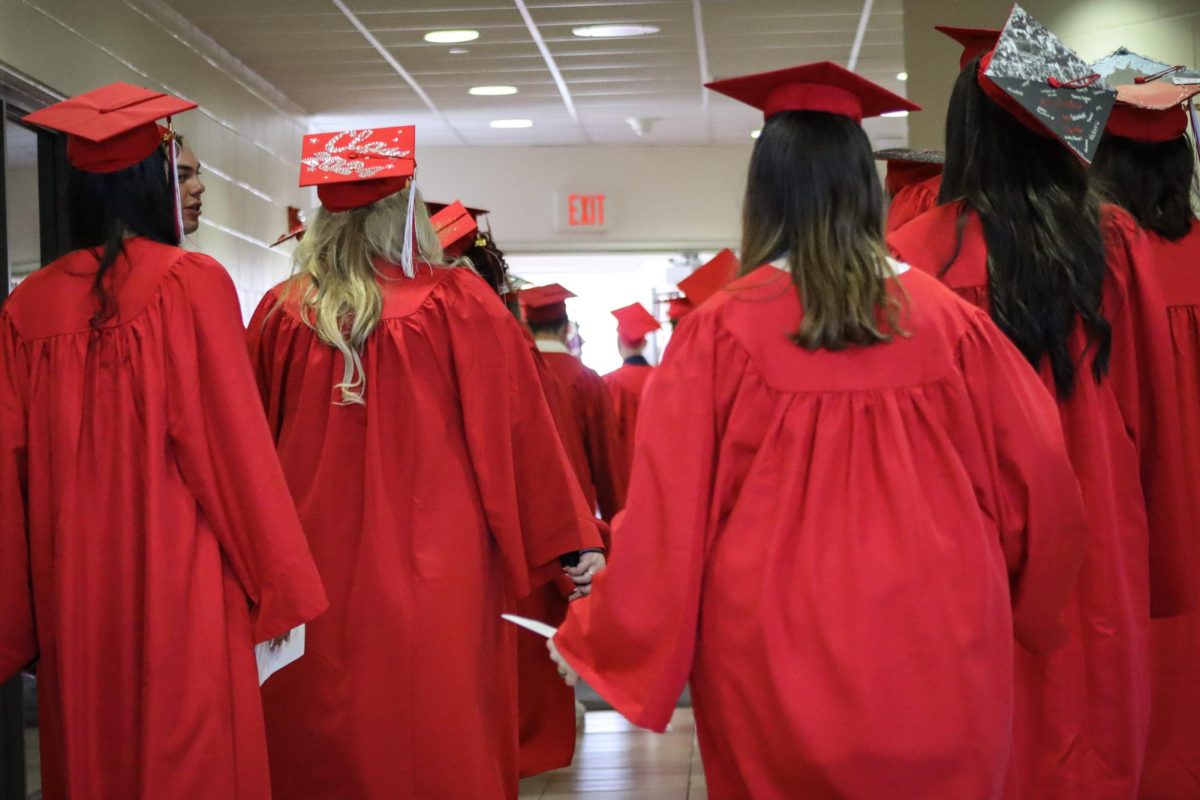by Rebecca Shwartz
Dr. Laura Chesson
Why do you want to be the superintendent of Hudson Public Schools?
I actually taught in Hudson when I first came back to Massachusetts. I’ve lived in New York and New Mexico because of my husband’s work and my work. I worked in industry before I became an educator. I taught math for eighth grade when eighth grade was incorporated in the high school, math for ninth and tenth graders, and I was one of the first teachers in Virtual High School. When I became a principal in Maynard, I interacted with the people in Hudson and learned about the school district in the area. It has a good reputation for being an innovative district, having a strong community to support it, and diversity in the community, which makes for a rich learning environment.
How will you address the growing mental health issues that students are facing?
Unfortunately, it starts at a very early age, sometimes as early as elementary school, and in Arlington we’ve put in a number of programs to try to help students with social and emotional health right from the elementary school. We have a program in kindergarten called Tools of The Mind, which tries to help students do self-regulation to control their responses to situations and their anger or express themselves with words when they’re upset to handle problems.
We then expand that program in grades one through five with Responsive Classroom, which teaches both teachers and students about the strength of words and how the words you choose can make a difference with positive or negative outcomes. We’ve also incorporated social workers at the elementary schools, so students can go get assistance or talk to them about problems. Both of these programs at the elementary schools help to create positive relationships between teachers and students, so students feel that there’s always somebody to talk to.
At the middle school, we’re planning to bring Responsive Classroom in two years because we’re in the process of providing professional development for teachers to get an idea of what to follow. There are other programs in the middle school, such as World of Difference and Care Coaching that also help create relationships between students and students with teachers. All the guidance counselors are certified school adjustment counselors so that they have the ability to handle and support students.
At the high school, we put in numerous programs to try to support connections between students, and we’ve been working a lot at the high school recently, introducing the Harbor Program for students that have social, emotional, and mental health problems, who have possibly had significant outpatient treatment to help make the transition back to school. We also have a program called the Millbrook Program for students with social and emotional problems that are unable to attend to their issues in a residential placement; it’s a smaller environment to really support them with their mental health issues. There would be similar programs in Hudson, but since I’m not in Hudson, I couldn’t tell you exactly what I would do. It’s important to come in, learn about the community, and talk to the teachers, administrators, and parents to find the specific needs.
What do you see as strengths and weaknesses in our district?
I definitely think one of the strengths is the attentiveness of the community to the educational process, so it’s definitely the support from the community and from the parents regarding the education. They want good schools for their children. They want to be involved in the school process and the educational process. Good education comes from what’s called a “three-legged stool,” one of the legs being the parents, another being the community, and the third being the school system. If you have those three things, you have a good, solid foundation on which to build an educational experience for students. In terms of weaknesses, I’m not entirely sure I’d count this as a weakness, but it’s a challenge every district in Massachusetts faces with the rising cost of education and the increase of students with social and emotional problems or mental health issues. Both of these issues are rising across the state, and our funding from the state isn’t sufficient anymore to alleviate the pressure on these communities. You have to be creative in your problem solving, work closely with the community in order to communicate our priorities and make sure all of the funding is focused on those priorities.
How does your experience make you a great candidate for this district?
I have a very unique background, since I worked in industry for ten years before coming into education, and I’ve been in education for twenty years now. The reason I think that was beneficial is that the company believed in teamwork, creative problem solving, thinking outside the box, and the importance of the individual with development well before it became fashionable; thirty-five years ago, we were learning how to develop people and recognize that people were your most valuable resource. In addition, I’ve taught a wide variety of subjects, possibly more than others just because of the places I’ve worked in. I’ve worked in a very poor school district in New Mexico where I taught English, math, and science to eighth graders. When I came to Massachusetts, I taught math in Hudson, and I taught math, music, and writing in a Boston school. I have been an administrator in small cities, like Leominster. I was the assistant principal at their high school, which is very large and holds about 1,900 students. I’ve also been principal of Maynard High School, which was very small and had 303 students attending. I’ve worked in Boston, in a school which was the only public high school for the visual and performing arts, and now I’m the assistant superintendent in Arlington. In Arlington, our district is almost like a microcosm of all those other experiences for me, because two of our elementary schools are on the eastern side of the town, and they’re very urban with populations similar to what you would get in Cambridge or Boston, while on the other side of town, we have more suburban schools. We have seven elementary schools that are contrasting and are similar in some ways, but we feel like we need to be committed to providing them the same education, whether we have a school with more economical challenges and English being taught as their second language or even wealthy families that know English as their first language. My experiences have given me a strong background and let me look at a wide variety of solutions that I think would make me a valuable candidate to the town of Hudson.
Can you describe your districtwide teacher leadership program?
That is correct, as sometimes, teachers would like to have a chance at learning leadership skills, want to have an opportunity to share with their colleagues, but don’t want to leave the classroom, and often times these ideas are valuable in the classroom with other teachers, as it gives them an opportunity to have a growth in their career path.
Our teacher leadership program started in English Language Arts at the elementary level where we have teachers that would really like to be working with their peers, coach their peers, maybe offer others to join them in their classroom to see a new curriculum. What we do is we have teachers host other teachers in their room to see a unit, like opinion writing in third grade, and they’d watch the teachers teach, and the invited teacher would work with small groups of students until they finished with a debriefing session. The exemplary teacher would meet with the invited teacher after school or possibly an online discussion group and talk about what did or didn’t work in the lesson. The exemplary teacher would then videotape themselves and post the videos on the web, so other teachers could see the follow up lessons and teach that lesson to their own students. They’re there to provide coaching, assistance, provide professional development, and they get to spend their time in the classroom doing what they love while expanding their career.
We’ll be expanding that in the fall to include math and science at the elementary level. We chose to do the elementary level first because elementary teachers have to teach all the major subjects while laying the groundwork for social emotional development for students to learn how to study, how to behave in class, how to stand in a line correctly, ideas like that. By having these teacher leaders working with them on these challenging jobs, we give them a level of support we couldn’t afford otherwise.
We also have teacher leaders in technology, as some teachers offered to be trailblazers in the use of technology in the classroom, and they started this movement five years ago, and at this point, it’s spread across the district, but for the first couple of years when we had an influx of technology, these teachers would be the ones that would be using it in their classroom first, showing it every couple of weeks, talk about what was working, give back feedback to the IT department where there were problems, and ran development classes for peers. Our teacher leadership program really grew organically because these teachers really wanted to have this opportunity, and now, they’re eager to try all sorts of new programs for our peers. We like to sit and look at writing samples, talk about how we’d grade them, and they’re running with the ball while I’m just working on supporting them and getting them the funds.
Do you have a transition plan for the district?
When I was the principal in Maynard and when I became the assistant superintendent in Arlington, you developed a transition plan, so I developed a plan that involves really getting to know the community and listening a lot. For the first six to nine months, you’re basically listening and asking a lot of questions, and then playing back to the people that you asked questions and listened to make sure you actually heard them. Sometimes you might have some brief conceived notions about what’s going on, and that can color what you think you heard, so you have to say “I think I heard you say this, is that correct?”.
I’m meeting with people in the community, the town government, the town manager, the planning committee, going to community events, any senior centers or another organization in town that would be good to meet. In Arlington, I met with the Rotary club. I met with real estate workers to find out their opinion on the schools and what they tell their clients when coming to buy houses in Arlington, to really gather as much information as possible, even from teachers, the principal, students, staff members and people who work in the cafeteria. I often find the most interesting things from the custodians that work in my building, and they really know what’s going on and where some concerns are. Gathering information from all of those people and playing it back to them to make sure you heard them correctly is probably the largest part of my transition plan for the first year or so.
